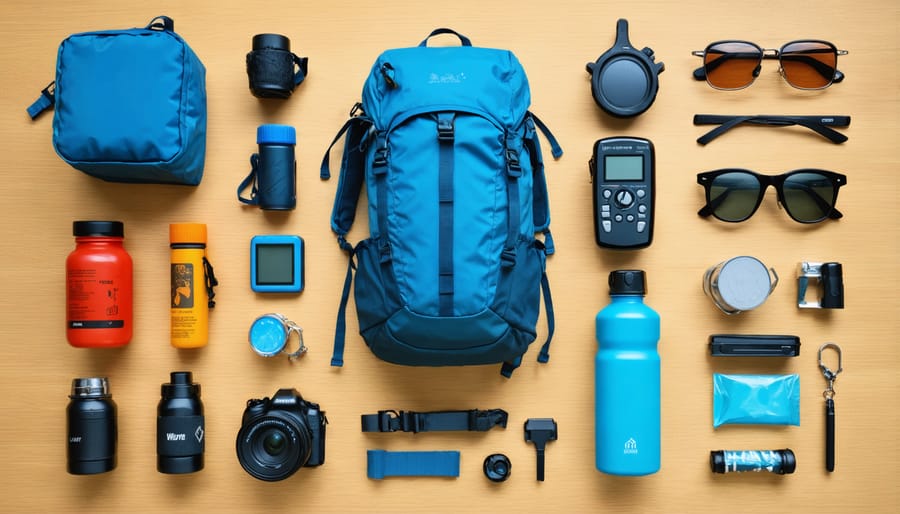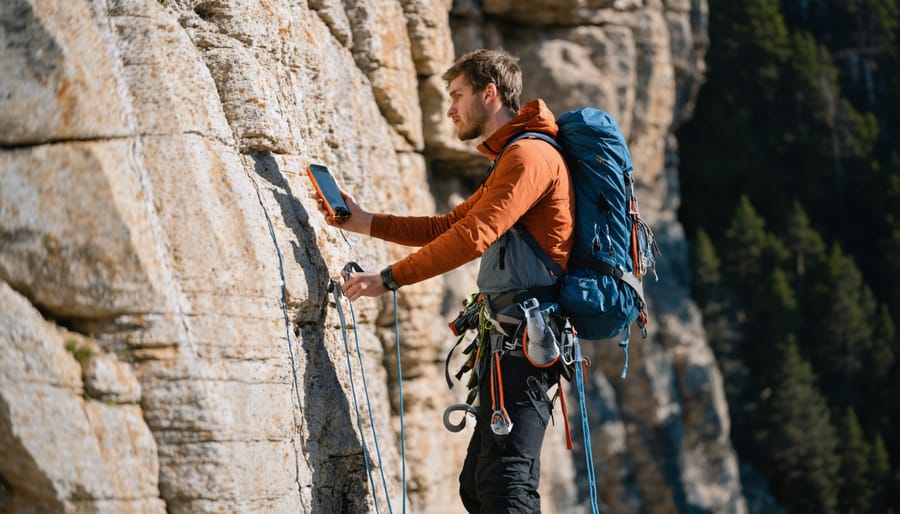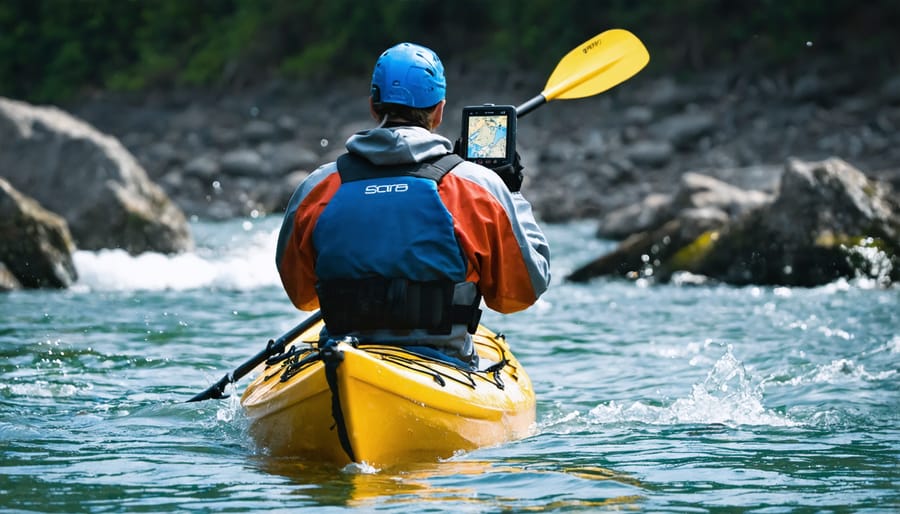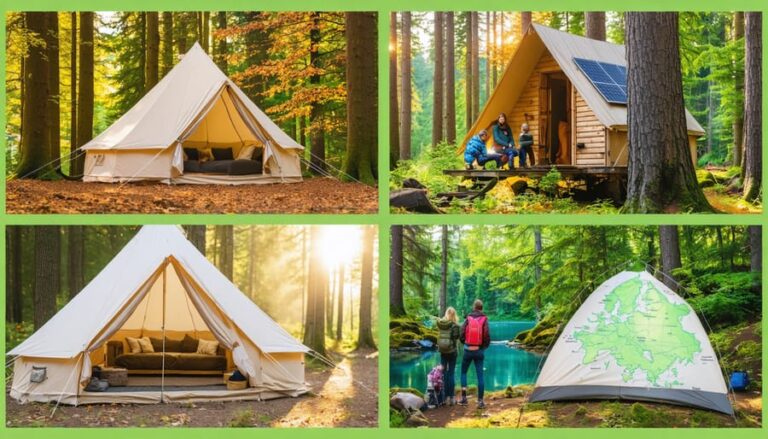Rappel down limestone cliffs, swim through underwater caves, and trek deep into remote wilderness areas while geocaching in Ontario Parks. This isn’t your typical weekend treasure hunt – extreme geocaching pushes both physical and mental limits, combining technical climbing skills, wilderness navigation, and problem-solving in some of Ontario’s most challenging terrains.
Pack specialized gear like climbing harnesses, waterproof GPS units, and emergency satellite communicators before attempting these high-difficulty caches. Expert cachers target locations like the sheer cliffs of the Niagara Escarpment, the remote islands of Georgian Bay, and the rugged wilderness of Frontenac Provincial Park, where caches often require multi-day expeditions and advanced outdoor skills to reach.
Safety remains paramount – always cache with an experienced partner, file detailed trip plans, and carry proper safety equipment. While the rewards of discovering these hidden treasures are extraordinary, respect for nature and proper preparation are essential for successful extreme geocaching adventures.
What Makes Geocaching ‘Extreme’ in Ontario Parks
Technical Difficulty Ratings
Extreme geocaching takes the usual thrill of finding hidden treasures to new heights – literally and figuratively! These thrilling geocaching adventures are rated on a scale of 1 to 5 for both terrain and difficulty, with 5 being the most challenging.
A terrain rating of 5 typically means you’ll need specialized equipment like climbing gear, boats, or even scuba gear. These caches might be perched on cliff faces, hidden underwater, or require a lengthy backcountry trek to reach. The difficulty rating, on the other hand, reflects how challenging it is to actually find and retrieve the cache once you’re there.
What makes a cache “extreme”? Think puzzle caches that require solving complex riddles, multi-stage adventures spanning several kilometers, or caches cleverly camouflaged in challenging environments. Some might require visiting the location at specific times (like low tide) or coordinating with other cachers to complete.
Remember, these ratings aren’t just for show – they’re crucial safety indicators. Always check both ratings before setting out, and never attempt a cache beyond your skill level or without proper equipment.
Required Skills and Equipment
To tackle extreme geocaching safely and successfully, you’ll need a combination of outdoor skills and specialized equipment. Start with a reliable GPS device or a high-quality smartphone with offline mapping capabilities. While basic Adventure Lab caches might work with just your phone, challenging terrain caches often require more robust equipment.
Essential gear includes a sturdy backpack, weather-appropriate clothing (including extra layers), and proper hiking boots with good ankle support. You’ll also want to pack safety essentials: a first-aid kit, emergency shelter, headlamp, and plenty of water. For technical caches, bring climbing gear like ropes, carabiners, and a helmet when specified.
Skills-wise, you should be comfortable with map reading, compass navigation, and basic wilderness survival techniques. Experience in rock climbing, hiking, or scrambling is often necessary for the most challenging caches. Strong problem-solving abilities help with puzzle caches, while physical fitness is crucial for accessing remote locations.
Pro tip: Always carry a power bank for your devices and inform someone about your planned route and expected return time.

Top Extreme Geocaching Locations in Ontario Parks
Cliff-Side Caches
For thrill-seeking geocachers, Ontario’s cliff-side caches offer some of the most exhilarating finds in the province. The Niagara Escarpment provides spectacular opportunities, with caches tucked away in limestone crevices and perched on rocky outcrops overlooking Georgian Bay.
Lion’s Head Provincial Nature Reserve is home to several challenging cliff-side caches that require proper climbing gear and experience. Before attempting these caches, make sure you’re equipped with a helmet, climbing harness, and reliable ropes. Always cache with a partner when tackling these vertical challenges.
The Rattlesnake Point area in Milton features some particularly crafty hide spots along its cliff faces. Local geocaching veterans recommend visiting during spring or fall when temperatures are ideal for climbing and visibility is best through the bare trees.
Pro tip: Many cliff-side caches include difficulty ratings specifically for climbing skills. Start with lower-rated caches to build confidence before attempting more challenging ones. Remember to respect closure periods during falcon nesting season and always practice Leave No Trace principles while searching for these elevated treasures.

Deep Woods Challenges
Deep in Ontario’s wilderness, extreme geocaching takes on a whole new dimension. Navigating through dense forest canopies and unmarked terrain requires more than just your basic GPS skills – you’ll need a reliable compass, topographic maps, and solid backcountry navigation experience.
Many of these challenging caches are hidden in remote locations where satellite signals can be inconsistent. Pro tip: Download offline maps before heading out, and always carry spare batteries. The most difficult finds often require bushwhacking through thick undergrowth or following barely visible game trails.
What makes these woodland challenges truly extreme is the combination of distance and terrain. Some caches might be several kilometers from the nearest trail, requiring careful route planning and excellent orienteering skills. You might find yourself crossing small streams, navigating around beaver dams, or carefully picking your way through rocky outcrops.
Remember to practice “Leave No Trace” principles while searching. The deep woods are home to sensitive ecosystems, and it’s crucial to minimize your impact. Consider marking your route with biodegradable trail tape if you’re venturing far from established paths, but always remember to remove it on your way back.
Water-Based Adventures
Ontario’s lakes and rivers offer thrilling opportunities for water-loving geocachers. Grab your waterproof GPS and dive into adventures that combine paddling and treasure hunting! Some caches are only accessible by kayak or canoe, hidden along shorelines or on small islands in places like Georgian Bay and the Thousand Islands.
For the truly adventurous, underwater caches await in popular diving spots. These submerged treasures require SCUBA certification and specialized waterproof containers. Lake Ontario hosts several underwater caches, with depths ranging from 15 to 40 feet. Remember to always dive with a buddy and check local regulations before attempting water-based caches.
Pro tip: Invest in a good dry bag for your equipment, and consider tethering your GPS device. The best time for water caching is during the warm summer months when water temperatures are most comfortable.

Safety First: Essential Precautions
Emergency Preparedness
When venturing into remote areas for extreme geocaching, proper emergency preparation isn’t just recommended – it’s essential. Always carry a well-stocked first aid kit, including basic supplies like bandages, antiseptic wipes, and any personal medications. A fully charged phone is crucial, but don’t rely on it exclusively – pack a compass, detailed paper maps, and a reliable GPS device with extra batteries.
Let someone know your planned route and expected return time before heading out. Carry emergency shelter supplies like a compact emergency blanket and waterproof matches, even for day trips. A whistle, flashlight, and emergency food and water are must-haves for your pack.
In challenging terrain, consider bringing basic climbing gear like a rope and carabiners. Weather can change quickly in Ontario’s wilderness, so pack appropriate layers and rain gear. Keep a satellite communication device handy for areas without cell coverage.
Pro tip: Create a geocaching buddy system and join local extreme geocaching groups. Not only is it safer, but experienced cachers often share invaluable emergency tips and location-specific safety advice.
Weather Considerations
In extreme geocaching, Mother Nature can be your greatest ally or your toughest challenger. Ontario’s weather can change dramatically, so planning around conditions is crucial for both safety and success. During summer months, start your cache hunts early to beat the humidity and bring plenty of water – those rocky outcrops can get surprisingly hot!
Winter caching brings its own exciting challenges. Many extreme caches become even more adventurous when covered in snow or ice. Always check the weather forecast before heading out, and remember that conditions can be significantly different at higher elevations or in deep valleys.
Pack according to the season but always bring layers. A sunny day can quickly turn cloudy and cool, especially near the Great Lakes. During spring and fall, be prepared for muddy conditions which can make challenging terrain even trickier. Rain-proof your GPS device and bring backup batteries – cold weather can drain them faster than you’d expect.
Pro tip: Create a seasonal gear checklist. What works for summer caching won’t necessarily cut it in February! And remember, some extreme caches might be better attempted in specific seasons when conditions are optimal.
Seasonal Extreme Geocaching Tips
Each season brings unique challenges and rewards for extreme geocaching in Ontario’s wilderness. In winter, pack your GPS in an insulated case to prevent battery drain, and always carry spare batteries – they deplete faster in cold weather. Snowshoes are essential for accessing remote caches, and bright-colored flagging tape can help mark your path in deep snow. Remember that daylight hours are shorter, so start early and always carry a headlamp.
Spring brings mud season and high water levels. Waterproof everything – especially your geocaching equipment. Quick-dry clothing is your best friend, and trekking poles provide extra stability on slippery terrain. Watch for ice remaining on north-facing cliffs well into the season. Many challenging caches become accessible as snow melts, but be prepared for soggy conditions.
Summer offers peak extreme geocaching opportunities, but requires careful planning. Start your hunt at dawn to avoid the midday heat and afternoon thunderstorms. Pack extra water and electrolyte replacements – scrambling over Canadian Shield in July can be intensely demanding. Bug nets and quality repellent are non-negotiable for those deep woods searches.
Fall might be the ultimate season for extreme geocaching in Ontario. Cooler temperatures mean better climbing conditions, and falling leaves reveal caches hidden by summer foliage. However, wet leaves can be treacherously slippery, so maintain three points of contact when climbing. During hunting season, wear bright orange and check local hunting schedules before heading out.
Remember that extreme cache locations often have poor cell reception year-round. Download offline maps and share your planned route with someone before each adventure, regardless of season.
Extreme geocaching represents the perfect blend of outdoor adventure, problem-solving, and physical challenge. Whether you’re scaling cliff faces in the Niagara Escarpment or navigating remote wilderness trails in Algonquin Park, these high-stakes treasure hunts offer an unparalleled rush that standard geocaching simply can’t match.
Remember, though, that with great adventure comes great responsibility. Always prioritize safety by carrying proper equipment, checking weather conditions, and letting someone know your plans. Respect the natural environment by following Leave No Trace principles and being mindful of wildlife and vegetation. Consider joining local geocaching communities to learn from experienced extreme cachers and share your own discoveries.
The thrill of finding that perfectly hidden cache after an challenging climb or deep wilderness trek is what makes extreme geocaching so addictive. It’s not just about the destination – it’s about pushing your limits, developing new skills, and experiencing Ontario’s wilderness in ways few others ever will.
Ready to take your geocaching to the next level? Start small, build your skills, and soon you’ll be planning your own extreme caching adventures in Ontario’s most challenging terrains.














+ There are no comments
Add yours